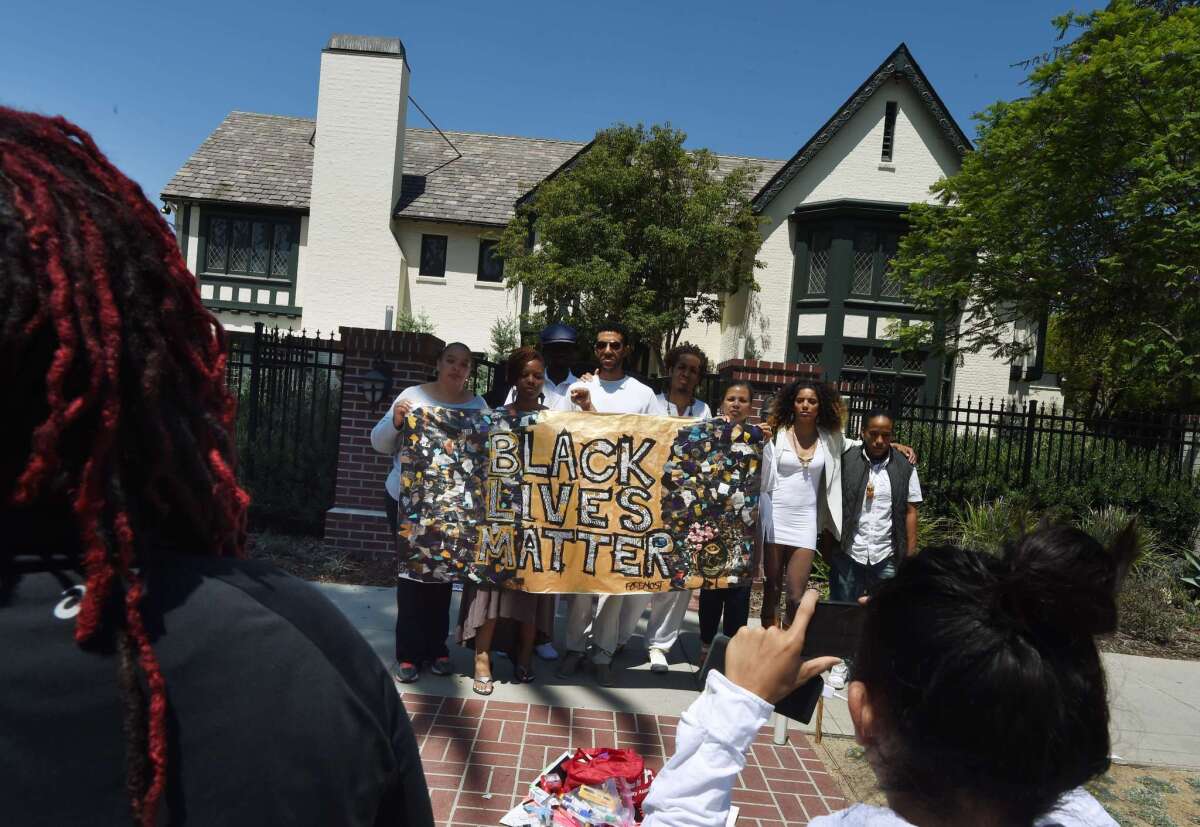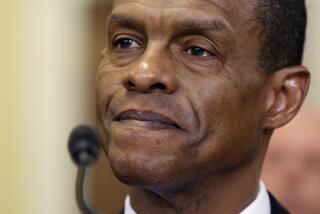Editorial: Why did LAPD officers shoot Ezell Ford?

Members of the âBlack Lives Matterâ alliance protest outside Mayor
Ten months after two LAPD officers shot and killed Ezell Ford, a 25-year-old mentally ill African American man, it is well past time for answers about what happened that night, and for an open and frank discussion about how officers interact with the people they stop.
A bit of âprocedural justiceâ is in order here. That refers to the simple but common-sense concept that if the police want to gain and maintain the trust of the public, they have to explain themselves.
Instead, the public is likely to get a long and unsatisfying list of reasons why secrecy is necessary when the Police Commission meets Tuesday to decide whether the shooting was within departmental policy. Much of the discussion will be in closed session, we expect, and it will be explained, as usual, that the Public Safety Officers Procedural Bill of Rights wonât allow public discussion of personnel records, even when an officer kills someone, unless the officer involved gives his or her permission. Again, the people of Los Angeles will be told that they need to chill out and trust that their leaders are making the right decisions in secret.
That wonât fly. Fordâs mother and other protesters showed up at Mayor Eric Garcettiâs residence Sunday to call angrily for public discussion of the findings by an in-house department review and another by Inspector General Alex Bustamante. Those reports apparently differ on whether the officers should have approached Ford in the first place, but agree that the shooting was within departmental policy.
We get that there are legal constraints for public officials, notably the overly restrictive state law protecting police officersâ rights. But this is a moment for strong leaders to move away from secrecy and self-protection in favor of full-throated discussion. Why did the police approach Ford in the first place? Were they aggressive from the outset?
And even if the shooting is determined to have been âwithin policy,â what exactly does that mean? Just because the police officers may have been within their rights to shoot when they believed that the suspect was trying to wrestle away one of their guns doesnât mean the shooting had to happen. Thereâs a big difference between saying that the two officers should not be prosecuted and saying that the killing was necessary and unavoidable. Would better training have averted this killing, or tougher laws on what cops may and may not do?
This is an immensely important point in history for Los Angeles as it deals with the same anger and frustration over civilian killings that has roiled cities across the nation. City officials â the mayor, the police chief and others â must explain what was done right, what was done wrong, and what steps can be taken to ensure that such tragedies will not happen again.
Follow the Opinion section on Twitter @latimesopinion and Facebook
More to Read
A cure for the common opinion
Get thought-provoking perspectives with our weekly newsletter.
You may occasionally receive promotional content from the Los Angeles Times.










